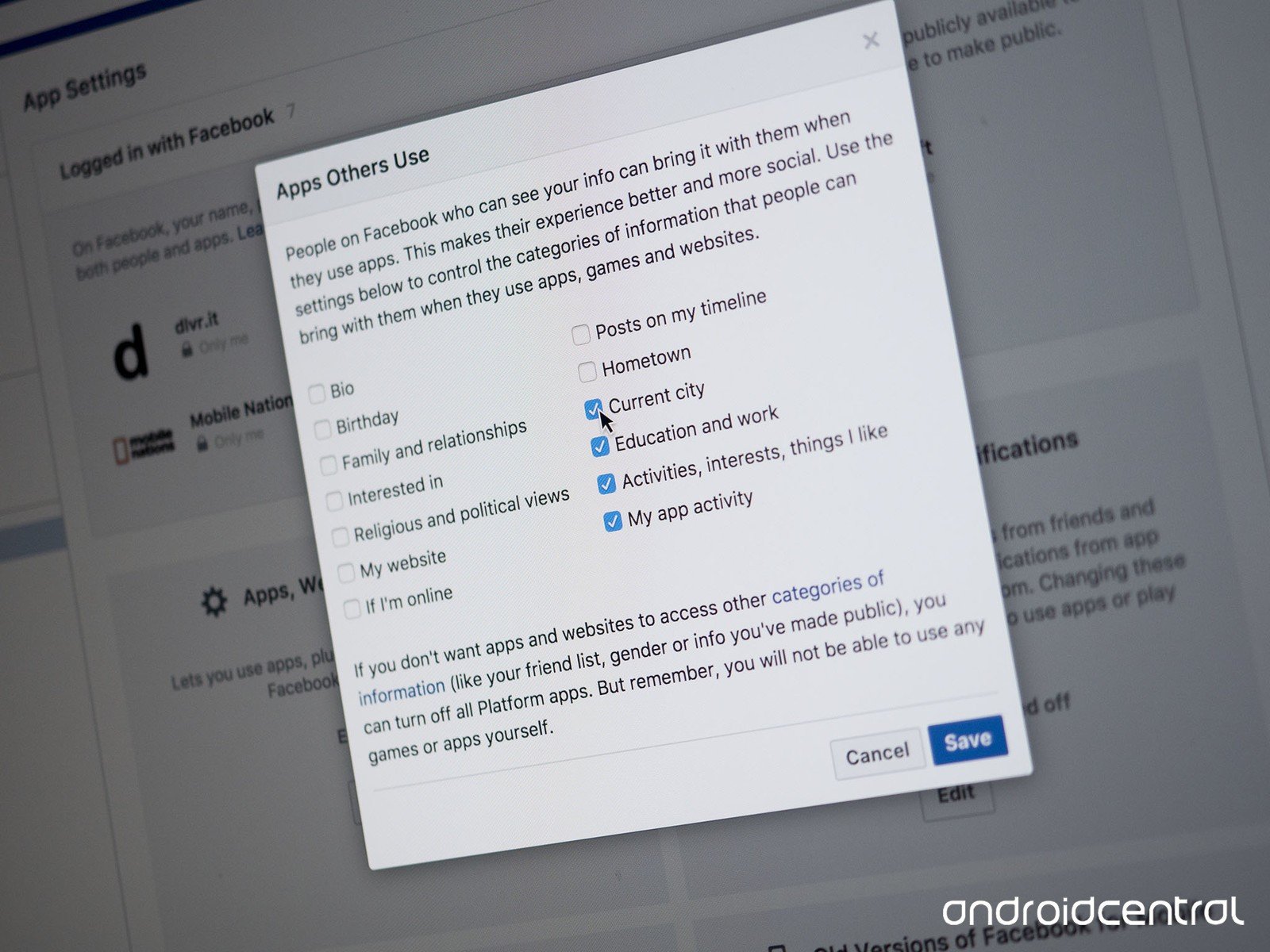Default settings never have your bests interests in mind, so check them out!
When you get something new, the first thing you'll want to do is start using and enjoying it and seeing the things it can do. That's why we want those new things in the first place, whether we're talking about a physical thing like a phone or a toaster oven, or a digital thing like an app or a new album. But if your new thing uses the internet, you should take a look at what else it might be doing before you dive in.
The recent (and ongoing) Facebook shenanigans really highlight what I'm talking about here, so I'm going to use it as an example. But know that applies to more than just Facebook, it's just the low-hanging fruit that makes it so easy to talk about. Facebook did a lot of ugly things but it only did the things you said it could do. I'm not here to say it's our fault — you'll never hear me come at you with that lame excuse because this was all Facebook relying on us not knowing what it was doing and trusting that the company wasn't willing to screw over every single user to make a few more pennies. But we could have prevented it from happening and hopefully we'll be more skeptical and untrusting in the future because of it all.
Predators like Facebook will always exist, so we need to do whatever we can to make things more difficult for them.
If you were to buy a new phone with Facebook installed or install the app as new, you might think that understanding the apps permissions would be enough to keep tabs on your privacy. We don't care about all of the details of our lives or who knows them; if we did businesses like Facebook wouldn't exist in the first place because we would never talk about what we're doing, who we're doing it with or where we did it. But all of that needs to be on our terms and shared with the people we decide to share it with, and no extra details need to be given. But a look at the default privacy settings for Facebook — and again, this goes for any app — will let you see that this isn't the case at all.
You're sharing details you had no idea you were sharing, had no idea could be shared, and had no idea that they were important enough for anyone to care in the first place. Your location, a history of your location, your internet history, details about your contacts, things you've purchased (and how you purchased them), and more are scalped from your phone or computer and shared with Facebook and its advertisers by default. Facebook is in the news because of how fast and loose it uses this information, but plenty of companies through plenty of services want the same kinds of data. That's why default settings usually have you opted into sharing it all — you are a cash cow to be milked as often as possible.
You might be OK with sharing some things to get better services.
This doesn't have to be a bad thing. What you get in return can be worth what you're giving away, especially when it comes to companies who offer services you love. Amazon, Microsoft and Google come to mind here. You can share private information and have a better online experience or a better personal assistant or a better way to shop. These three companies are also straightforward about what they take from you and how they treat it once its in their hands, too. But you should still take a look and see what you tell them be default, because like Facebook, the default settings are what's best for the company not what's best for you.
Those seemingly unimportant details of your life are worth millions of dollars.
The same goes for the phone or tablet or computer that's used to run these apps and services, too. An end-user licensing agreement will tell you part of the story so you really should read through them before you tap OK, but the settings need to be checked, too. That's where you can fine-tune things and say no to any of the things you're not required to give away to use the product. You'd be surprised at what you're sharing with Samsung or any other phone maker on top of what you're sharing with Google when you sign in to a new phone, so make sure you understand what you have to share and how to opt out of the things you don't.
These seemingly minor details are worth millions of dollars. You should make sure you're treating them the same way you treat your money.

Tidak ada komentar:
Posting Komentar